Important Notices for this WMA
| Notice |
|---|
| Seasonal Road Closures on WMAsSeasonal roads on Wildlife Management Areas are being closed early where possible due to the persistent poor winter conditions. These roads will remain closed until their scheduled spring opening the first Saturday in April. The public is asked to please use caution and if possible, avoid utilizing WMA roads that are open all year during inclement winter weather and poor road conditions. |
| Rapidan WMA – Middle River Tract Timber HarvestVisitors to the Middle River Tract of Rapidan Wildlife Management Area are advised that a timber harvest is underway. Loggers may be working in any of the areas shown on this map. Please use caution in these areas and do not block roads and or logging vehicles. |
| Rapidan WMA – Middle River Tract – 4WD Vehicle RecommendedPublic vehicular access to the Rapidan WMA has been restored to the Middle River Tract via Route 615/Bluff Mountain Road. However, it is strongly recommended that anyone wanting to drive into this area should do so with a 4WD vehicle due to the existing conditions. Foot traffic is still allowed throughout the tract. DWR and a number of partners have worked together to improve access to the Rapidan Tract. Even with these improvements, it is still a good idea to use a 4WD vehicle to reach this part of the WMA. |
Overview
Perhaps nowhere is there a more beautiful stream than the upper reaches of the Rapidan River at full stage, or mature mixed hardwood forests than those in the area’s deep, moist hollows. From these narrow, rocky stream courses and deep valleys rise rugged mountains, many having steep slopes and adorned with forbidding laurel thickets. Welcome to the Rapidan Wildlife Management area.
The area consists of 10,326 acres broken into eight separate tracts distributed along the east slope of the Blue Ridge Mountains in Madison and Greene Counties. Four of these tracts adjoin Shenandoah National Park and share nearly 25 miles of boundary. Elevation ranges from 1,400 to 3,840 feet. The Rapidan, Conway, and South Rivers are the area’s major streams. Prior to the Department’s ownership, most of the area was forested, though frequent timber harvesting took place by a succession of timber companies. Timber type is predominantly mixed hardwoods with southwestern slopes harboring chestnut oak forests. Most of the deep valleys and slopes are predominantly tulip poplar forests. However, relict northern hardwood forests of sugar maple, yellow and black birch can be found in higher elevations and in a few of the deep drainages. Evidence of steep mountain roads, old home sites and cemeteries, and rock piles, left over from field clearing and farming, still linger as a testament to the sturdy mountaineer families that once lived in this area. Some older, mature timber dead and dying from gypsy moth infestation was salvaged in the late 1980s.
Hunting
Sunday Hunting Opportunities on Public Lands in Virginia »
Deer populations, though moderate in numbers, remain stable and provide quality hunting opportunities. Turkey numbers remain stable as well. Gray squirrels and ruffed grouse can be found throughout the area. The rugged terrain and remoteness of the Rapidan WMA, and its close proximity to the Shenandoah National Park make the area a premier location for black bears. Woodcock are readily found in some of the wetter sites near old house sites and along some of the large streams. The Rapidan WMA is diverse in habitat types and is managed through periodic timber harvesting and maintaining small clearings.
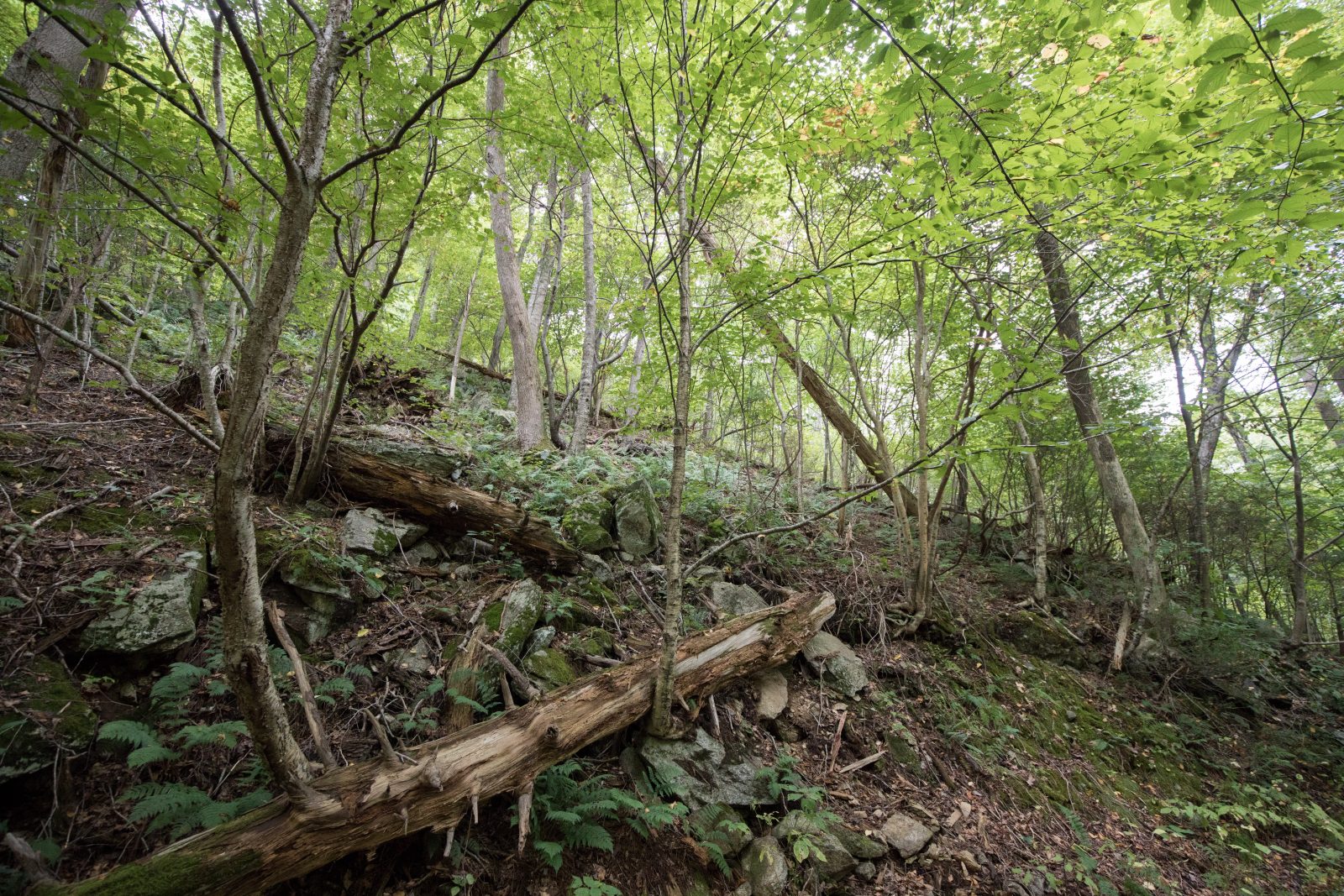
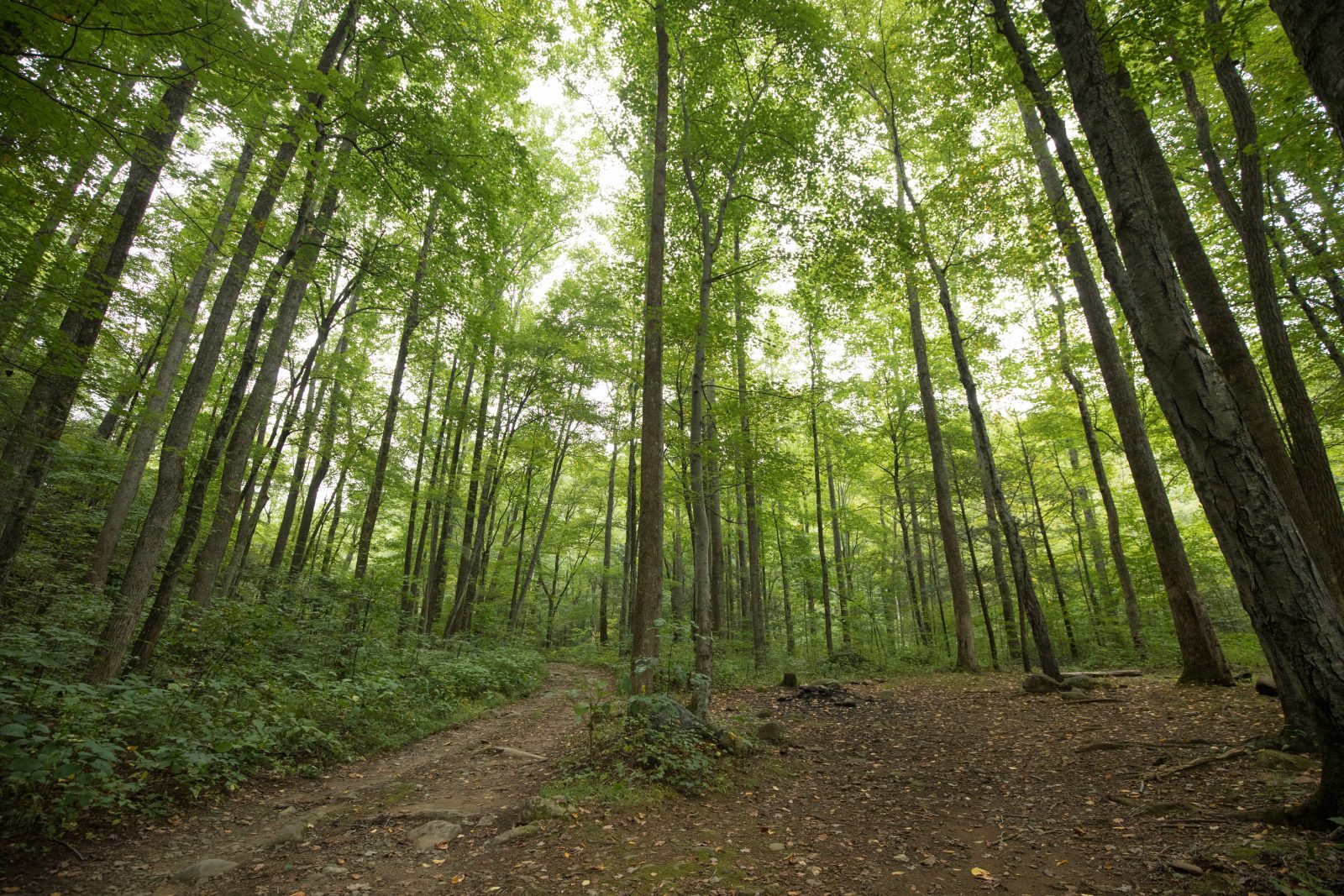
Fishing
The Rapidan Wildlife Management Area has an exceptional native trout fishery. Healthy populations of brook trout abound in its rivers and streams; most notable of which are the Rapidan and Conway Rivers. The Conway River also contains numerous wild brown trout to entice the adventurous angler. Small, swiftflowing headwater streams grade into larger boulder adorned rivers. Cascading white water interspersed with shallow and deep quiet pools filled with native trout provide a wonderful experience for the trout angler. Fish-for-fun regulations apply on the Rapidan River and all its tributaries within the boundaries of the wildlife management area and Shenandoah National Park.
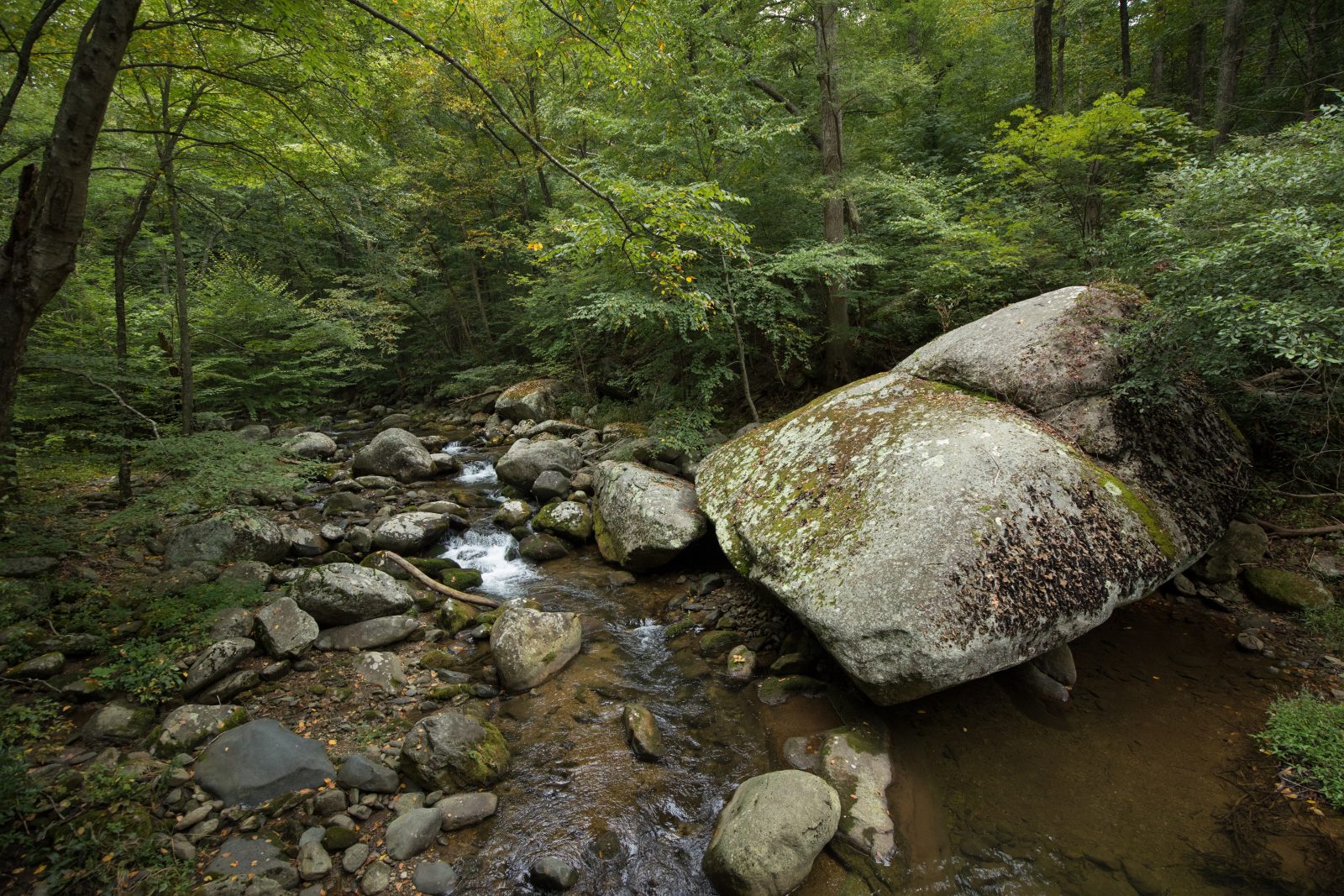
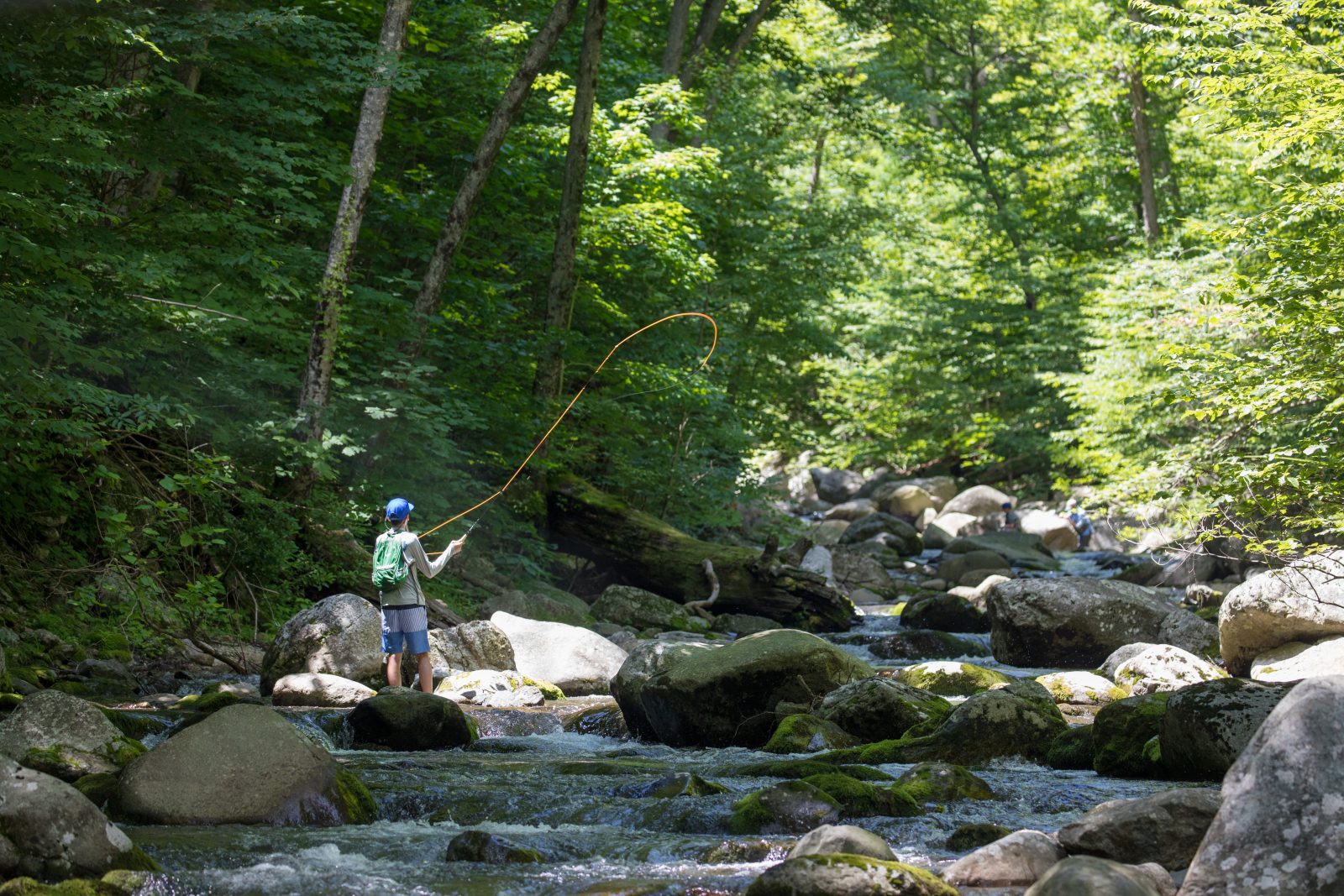
Other Activities
The Rapidan Wildlife Management Area is a popular place for wildlife and fish-related activities. While hunting, fishing, wildlife viewing are the primary uses of the area, other outdoor activities compatible with the wildlife management area include hiking, camping and nature photography. Primitive camping (no developed sites or facilities) is permitted throughout the management area; however, it is subject to wildlife management area rules. The rules are posted on all the informational kiosks.
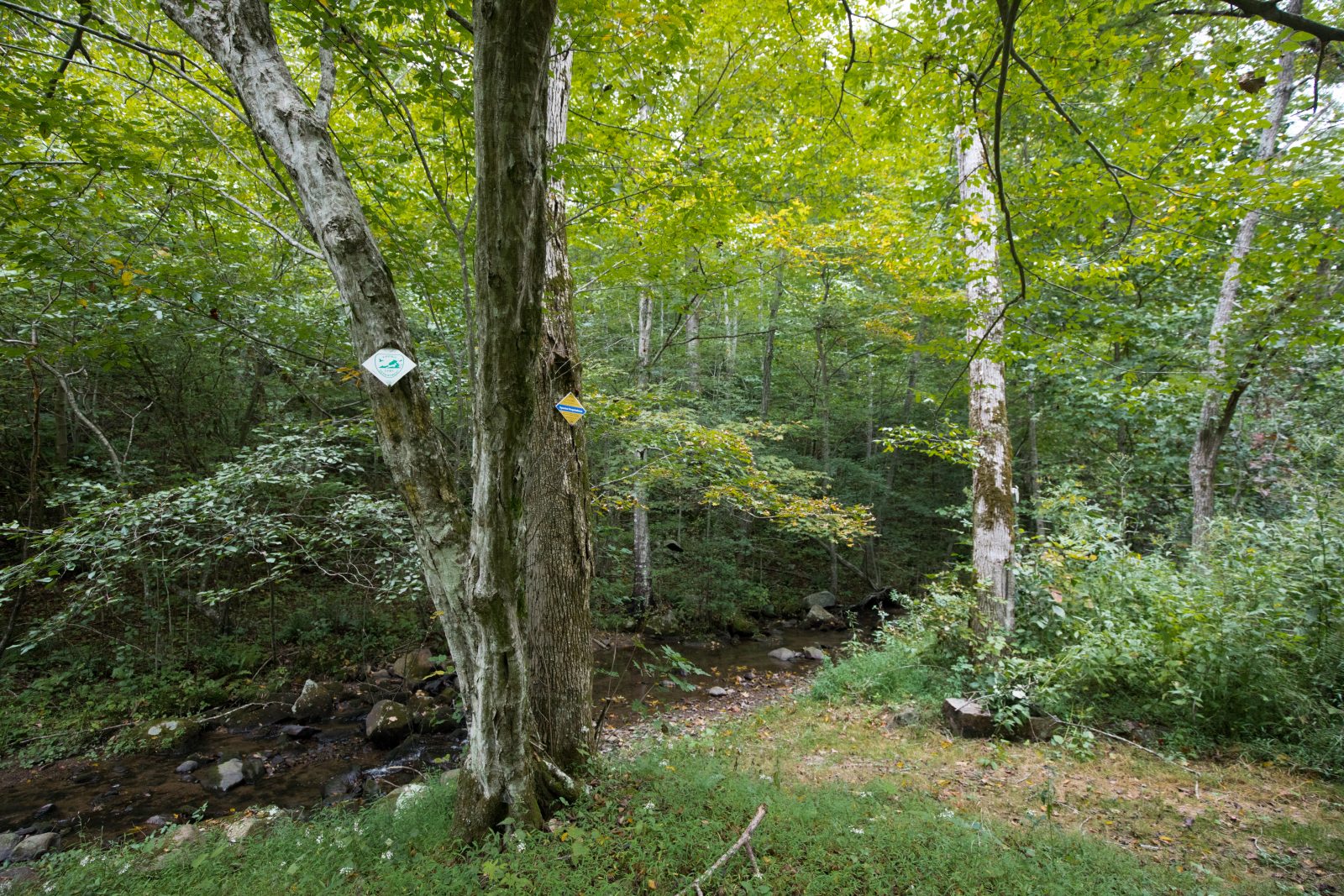
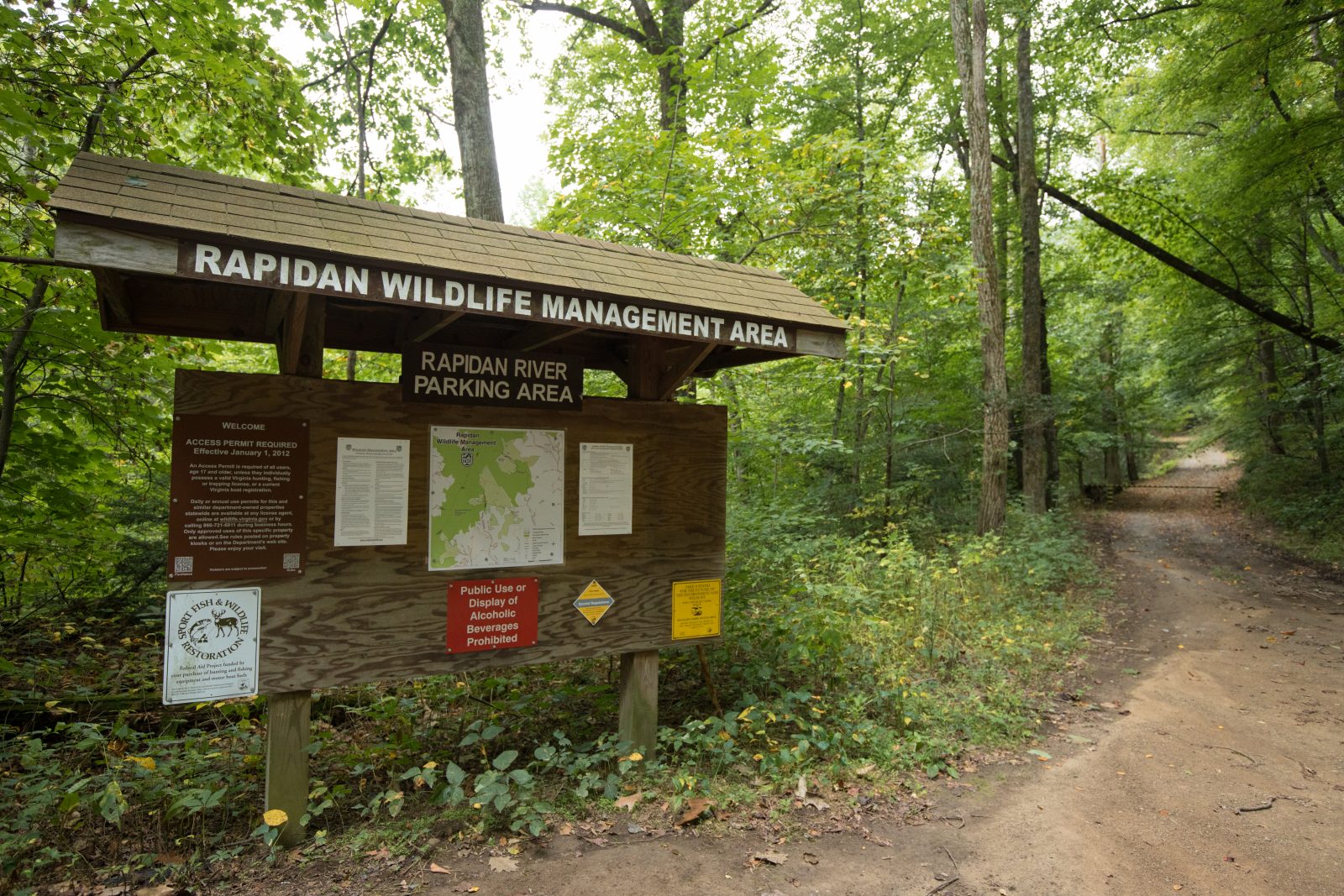
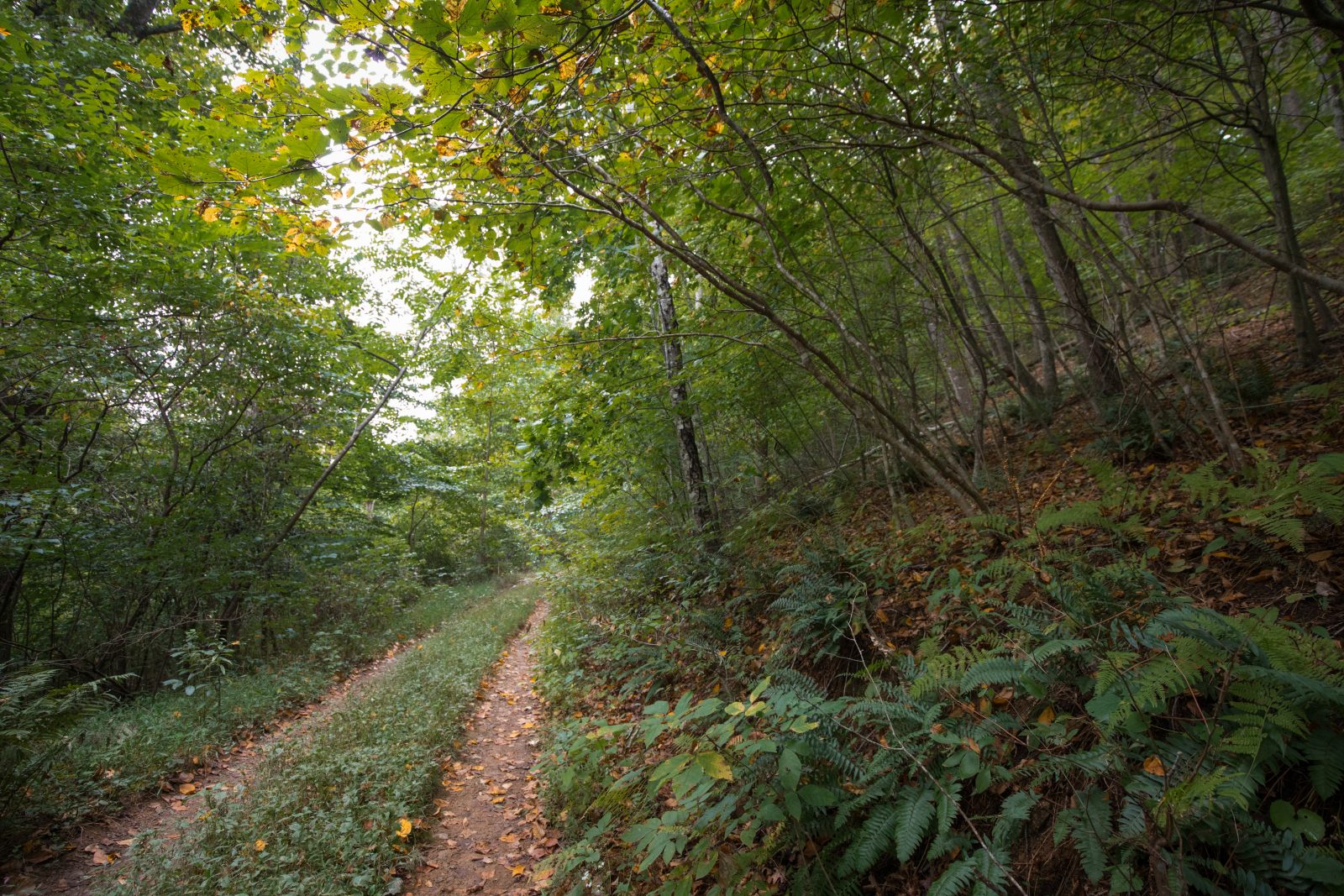
Maps & Directions
The Rapidan Wildlife Management Area is located approximately 25 miles west of Culpeper and 30 miles north of Charlottesville. Access to the Rapidan tract; follow State Route (SR) 231 to Banco (5.5 miles north of Madison). From there, take SR 670 for one mile (through Criglersville) and turn left onto SR 649 (Quaker Run Road). Follow 649 beyond the state maintained portion of the road and continue on the dirt road all the way to the management area. To access to the Middle River tract; follow SR 230 west from SR 29 (south of Madison) to Wolftown. From there follow SR 662 to Graves Mill and continue on SR 615 all the way to the management area. Public access to the South River tract is limited to one road, SR 642 (Taylor Mountain Road). Follow SR 230 past Wolftown to SR 621 west (South River Road), which is 2 miles north of Stanardsville. Follow SR 621/637 (621 will turn into 637) and make a left turn onto SR 642. Follow 642 up the mountain and beyond the state maintained portion of the road. Continue up the dirt road to the management area. Be advised wildlife management area roads, and roads leading to the area beyond state maintained portions, are narrow and not maintained to VDOT standards and can be rough.
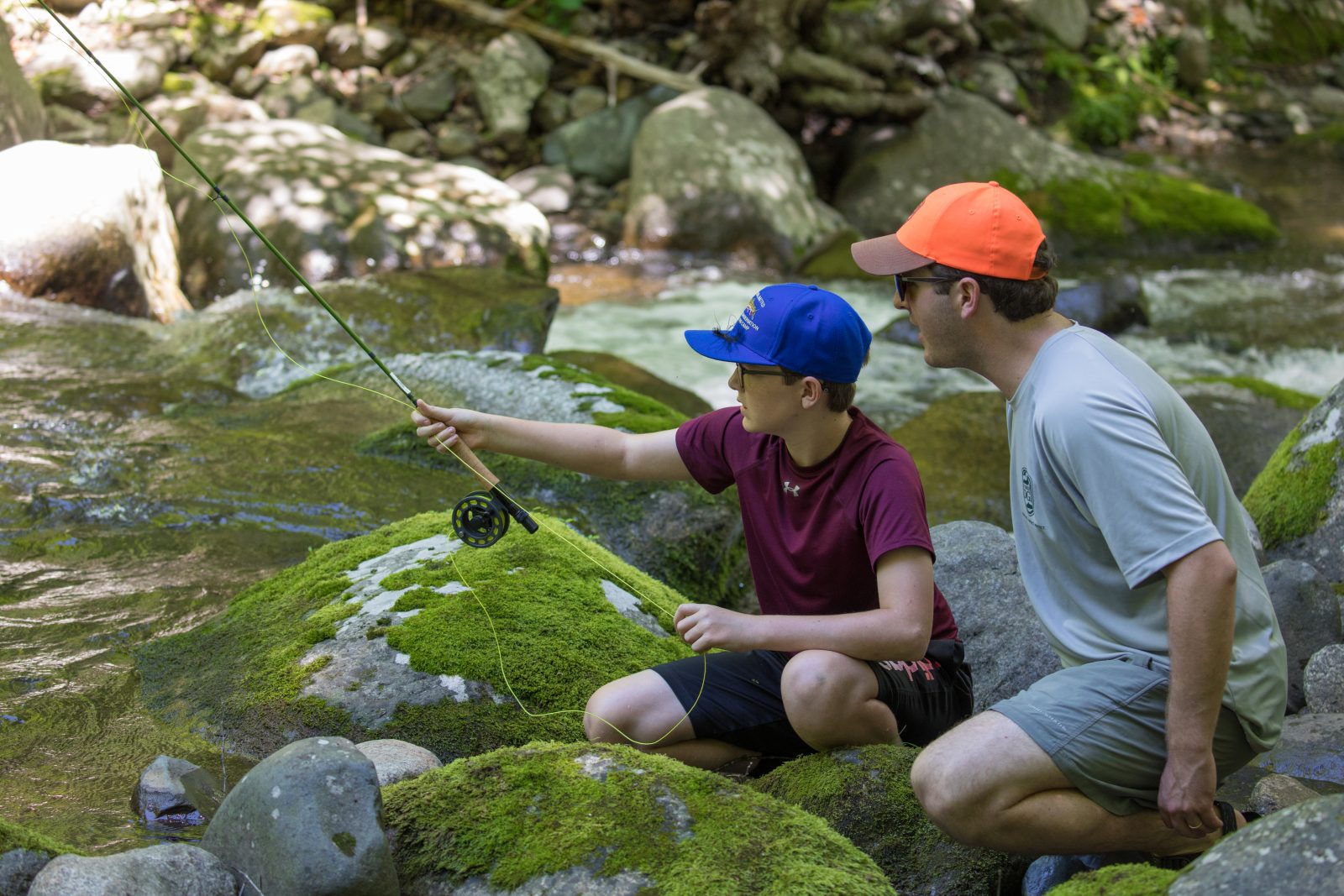
Map of Rapidan WMA
What To Know Before Visiting
A valid Virginia hunting or trapping license, fishing license, current certificate of Virginia boat registration, access permit, or current “Restore the Wild” membership is required to use this area.
Recreational Opportunities
- Hunting
- Trapping
- Primitive Camping (Requirements for Camping on WMAs)
- Trout Fishing
- Hiking
- Horseback Riding
- Wildlife Viewing
Images by: Meghan Marchetti /DWR

